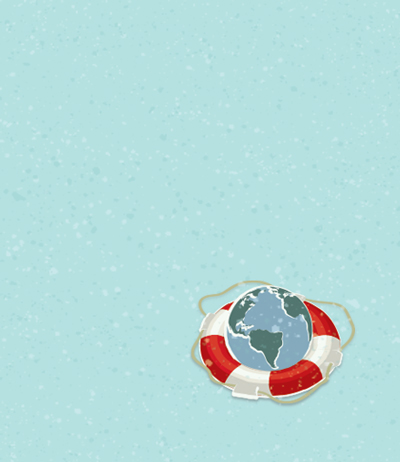Collaborate with Science Teachers To Share Climate Resources
Librarians must make science teachers aware of the reliable material available to them, from databases and elsewhere.
 |
Related Articles:A Matter of Facts: Teaching Climate Change A Science Teacher’s Go-To Resources for Teaching Climate Change |
Evidence-based teaching seems straightforward—until you’re the one gathering and assembling the evidence. Already pressed for time, teachers with no formal training in climate change can feel overwhelmed trying to find, digest, and present data to their students. They’re overlooking a critical ally, says Elizabeth Zdrodowski, library media specialist at Glades Central High School in Belle Glade, FL.
“In a place where there is proper collaboration between librarians and the science department, we [librarians] would assist with research and projects,” says Zdrodowski. After all, librarians, resource and media experts, are trained to help teachers navigate mountains of available information and find, cite, and format research from the most reputable sources.
If that librarian-teacher relationship is underdeveloped, that just means librarians “have to be creative,” Zdrodowski says. For school librarians who aren’t yet collaborating with the science department, “working with single teachers or even individual students” can be a step to establishing yourself as part of the team. It’s critical to make teachers aware of the reliable resources available to them.
This is particularly relevant in Florida, where a pending bill, filed in the State Legislature in January, would allow schools to teach alternatives to “controversial issues,” including human-caused climate change and evolution.
“There are so many different potential resources out there, and it can be hard to choose the best ones,” says Brandon Haught, an environmental science teacher in Orange City, FL. “I have a very short window of time to devote strictly to climate change—approximately five or six days. So I have to be choosy about what resources to use.” In the race against time and toward accuracy, Haught chooses material from reputable sources such as NASA and the Environmental Protection Agency.
That approach makes good sense for teachers embarking on climate science alone, but Zdrodowski points to the wealth of resources beyond what’s published by government agencies. When school districts pay for access to expansive research databases, librarians—and not always science teachers—are the ones trained to utilize this wealth of information, she notes. For starters, Zdrodowski suggests using ProQuest’s SIRS Issue Researcher and Gale Global Issues in Context’s many resources, including videos. She also recommends information from the MIT Center for Global Change Science.
Not only do databases have access to the most recent research, but using them helps teachers steer clear of inaccuracies.
Many sites provide professional-appearing, user-friendly “teacher resources” that aren’t remotely evidence-based, says Haught, who spent much of 2018 defending science resources and textbooks as part of Florida Citizens for Science, a nonprofit science education advocacy organization.
Both Haught and Zdrodowski urge educators to ask for help. Climate science is a critical topic, but teachers shouldn’t have to go it alone. Fellow educators, librarians, local universities, organizations like NSTA—there’s a network of people ready to dive in with you, says Haught.
Donavyn Coffey is a New York City-based science journalist.
RELATED
The job outlook in 2030: Librarians will be in demand
The job outlook in 2030: Librarians will be in demand
ALREADY A SUBSCRIBER? LOG IN
We are currently offering this content for free. Sign up now to activate your personal profile, where you can save articles for future viewing






Add Comment :-
Be the first reader to comment.
Comment Policy:
Comment should not be empty !!!